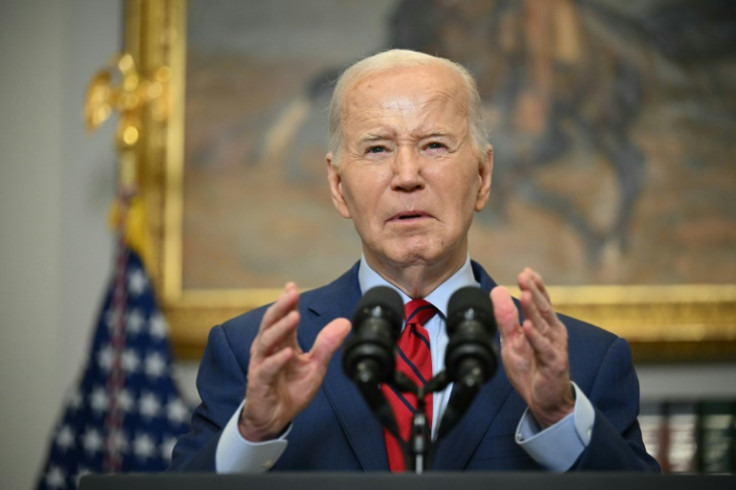
President Joe Biden broke his virtual silence Thursday on the nationwide Gaza campus protests, saying the United States was not authoritarian but insisting "order must prevail."
In a televised address from the White House, Biden added that there was "no place" for anti-Semitism on university campuses, which have been roiled by pro-Palestinian demonstrations amid Israel's war on Hamas in Gaza.
The 81-year-old Democrat -- whose reelection bid in November faces a challenge from voters opposed to the war -- said there had to be a balance between the right to peaceful protest and the need to prevent violence.
"We are not an authoritarian nation where we silence people or squash dissent," Biden said from the podium in the Roosevelt Room of the White House.
"But neither are we a lawless country," added Biden. "We're a civil society, and order must prevail."
The US president also said the protests could not be allowed to disrupt classes and graduations for thousands of students at campuses across the United States.
Biden has faced criticism from all sides of the political spectrum over the protests, several of which have been broken up by police in recent days with dozens of people arrested.
Republicans have accused him of being soft on what they say is anti-Semitic sentiment among the protesters, while he faces widespread opposition in his own party for his strong support for Israel's deadly military offensive.
"There should be no place on any campus, no place in America for anti-Semitism, or threats of violence against Jewish students," Biden added.
"There is no place for hate speech or violence of any kind, whether it's anti-Semitism, Islamophobia, or discrimination against Arab Americans or Palestinian Americans," he said.
"It's simply wrong."
His comments came after Israel's president on Thursday said US universities consumed by campus protests were "contaminated by hatred and anti-Semitism."
After his remarks, Biden said "no" when asked if the US National Guard should intervene to break up the demonstrations.
He also said "no" about whether the protests would change his policy of strong support for the Israeli offensive on Hamas in Gaza following the October 7 attacks on Israel.







